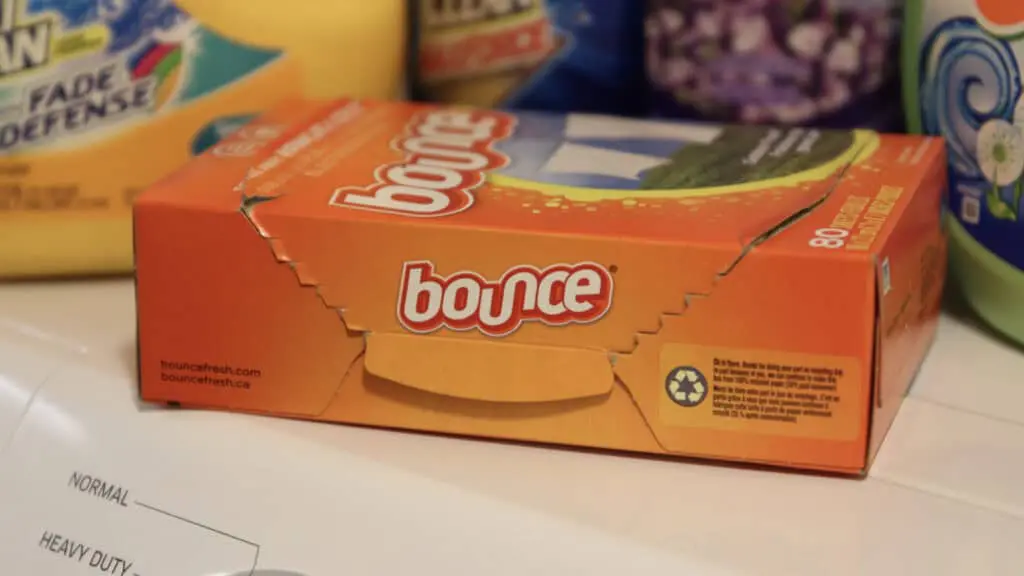16 Household Items You Didn’t Know You’re Wasting Money On
Now and again, we find ourselves discovering a useless product in our homes—an item we once believed would transform our cleaning or cooking habits from subpar to superstar. Lots of these items existed in the infamous “As Seen on TV” commercials, promising to add joy and ease into lives overflowing with mess. As these items and other random household belongings pile into the pantries, taking up crucial space, we wonder, do we need to spend this much Money on nonessential items?
1. Dryer Sheets

Dryer sheets are a massive waste of money and resources. Although the single-use sheets succeed in eliminating static and producing a pleasant scent over clean clothes, they only work for a single load, resulting in excess waste.
Instead of wasting five dollars on a package of single-use sheets, use reusable items like aluminum foil or wool dryer balls.
2. Bottled Water

Water is an essential resource, one we all need to continue to survive on this planet. Thankfully, we live in a time where water filters rid our sources of dirt and impurities, making our tap water safe to drink. Plus, most public places have filtered water available.
All you need is a reusable water bottle and access to filtered water. Cutting back on bottled water saves hundreds of dollars annually and reduces plastic waste.
3. Paper Towels

Paper towels are a lesson in overindulgence. How many times have you, or someone you know, spilled something and grabbed a roll of paper towels to clean up the mess? Humans tend to overestimate, using more than we need to mop up a sticky substance.
To save money, use old rags or towels in place of paper towels. Shirking the single-use towels teaches you how to clean up effectively using other resources like sponges and towels and encourages people to attend to their laundry more frequently.
4. Single-Use Utensils

Unless you don’t have access to the internet or a newspaper, you know that plastic is one of the biggest polluters, with an island dedicated to its output. The Great Pacific Garbage Patch contaminates a fair portion of the Pacific Ocean. When plastic drifts into open water, sea life swims into those traps and loses their lives and limbs.
Of course, a single household can’t erase the masses of plastic pouring into the ocean; reducing single-use utensil use can minimize that pointless waste. Opt for silver silverware or reusable bamboo cutlery instead of plastic.
5. Slicers

Anything you can do with a slicer, you can do with a knife. Yes, placing an orange into a slicer saves time and energy, but it saves no money.
Save those dollars for quality knives that cut through anything instead of wasting them on a subpar slicer.
6. Coffee Pods

Coffee Pods are another component contributing to the world’s waste problem. Think about a coffee pod. What do you see? Is a container of plastic encapsulating a tiny portion of Joe? A single-use plastic cartridge capable of transmitting harmful chemicals into your coffee cup.
Brew your own coffee beans or purchase coffee beans in bulk to reduce waste and save precious dollars.
7. Tea Bags

Like coffee pods, tea bags contain a lot of waste per serving. A paper or plastic bag conceals the measly portion of tea, which also sits in another container. The plastic and paper waste finds its way to the landfill, swims out to the ocean, and ends up in the Great Pacific Garbage Patch.
Purchase loose tea leaves and a teapot to get way more tea. This will ensure your tea remains free of plastic particles.
8. Doggie Bags

Those green plastic dog poop bags adorning each pet deposit trash can go to a facility equipped to handle the waste. Despite the packaging, tossing them in the trash can doesn’t warrant the bag will compost or biodegrade.
Rather than splurging on fancy doggie bags (respecting your pup’s privacy with green concealer), use any leftover plastic packaging or bags for the excrement.
9. Razors

Disposable razors, especially ladies’ razors, run up the credit card thanks to pink tax and add waste to landfills. Disposable razors possess duller blades, giving fewer clean shaves than sharp, safety razors, and disposable razors come in elaborate packaging.
Invest in sharp, safety razors to save the bank and your shave. Spend a tad more money upfront to pay less in the long run.
10. Sponges

Sponges sit around, near sinks and dirty dishes, collecting grime and bacteria over time. While sponges aim to clean surfaces, they transmit dirt and bacteria across our cutlery and surfaces.
Dish brushes hold far less bacteria, and clean dishes without the fear of leaving behind residue or spreading bacteria. Sponges call for a weekly replacement, while dish brushes last around a month.
11. Laundry Pods

Do you use liquid detergent or throw a cute, concealed package of soap into the washer, believing it will deliver a load of sparkly, clean laundry? Laundry pods are much more efficient in a time crunch, and for those who despise laundry days (myself included), the amount of detergent in a pod inhibits its cleaning abilities.
Liquid detergent or powder permits a launderer to use as much detergent as they please without worrying about a semi-clean load of clothes. Or wasting money on unsatisfactory cleaning products.
12. Lint Rollers

What does a lint roller do? Wipe away dirt and dust from clothes, yes. But how wasteful is a lintbrush? Typically, running the roller over a pair of pants once or twice garners enough lint to peel back a new piece of the plastic contraption.
Several homemade, affordable alternatives exist for lint rollers. Rubber gloves, tape, dryer sheets, and nylon all wick away lint from fabrics.
13. Oven Cleaners

Why would you want to purchase something that will harm you? Oven cleaners emit toxic chemicals that irritate, harm, and upset skin. They can also damage the oven rather than clean it. If Poison Control writes about oven cleaners, staying away is best.
Stick to traditional baking soda and vinegar for a safe, effective oven-cleaning session.
14. Ziploc Bags

Whenever you can, use an alternative for a plastic item. Ziploc bags hurt bank accounts with exorbitant prices for single-use items, and they end up in our oceans. Many sea creatures eat these bags, mistaking them for food.
You can save money by wrapping a sandwich or a snack in aluminum foil or placing the food in a reusable container.
15. Screen Cleaners

We bring our phones every with us. Into work, into the bathroom, to the dinner table. Oftentimes, we don’t clean our phones as much as we should. However, are the wipes designed to clean our phones effectively delivering a clean product? Or are we buying into an overpriced false promise of sanitation?
Screen cleaners mark up prices to gain a profit, yet microfiber cloths and distilled water or a spritz of vinegar perform the same action.
16. Brand Name Items

The sacred bond between brand-name items and men is not one to tamper with. Humans find their favorite brand, pledge their loyalty to the said brand, and honor it, never straying to a competitor or, even worse, a generic iteration. I’m going to break several hearts right now, but brand names aren’t worth the extra money.
Sure, exceptions exist. My Dorito-addicted cousin would taste the subtle nuances between Walmart-brand nacho chips and her beloved. Many generic brands replicate brand names for a fraction of the cost. Are you willing to break your loyalty pact?
15 Overpriced Items That Are Draining Your Wallet

Humans adore quick, cost-effective purchases, but how much money do they really save over time? Which daily resources appear to save you a ton of money but actually wipe away funds? We’ve compiled a list of items that cost someone way more than anticipated upon purchase. Do you waste your money on any of these purchases?
15 Overpriced Items That Are Draining Your Wallet
16 Items We Splurge on While Financially Struggling

Many people have experienced a time when they were financially strapped. During these times, they typically adjust their budgets to make sure they have enough money to pay for basics and necessities. Despite the good intentions for budgeting, giving in to the temptation to splurge often happens.
























